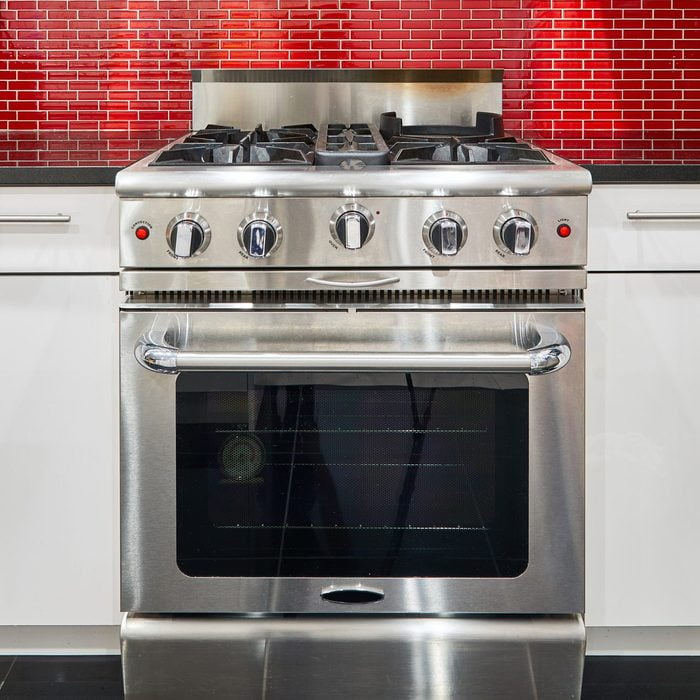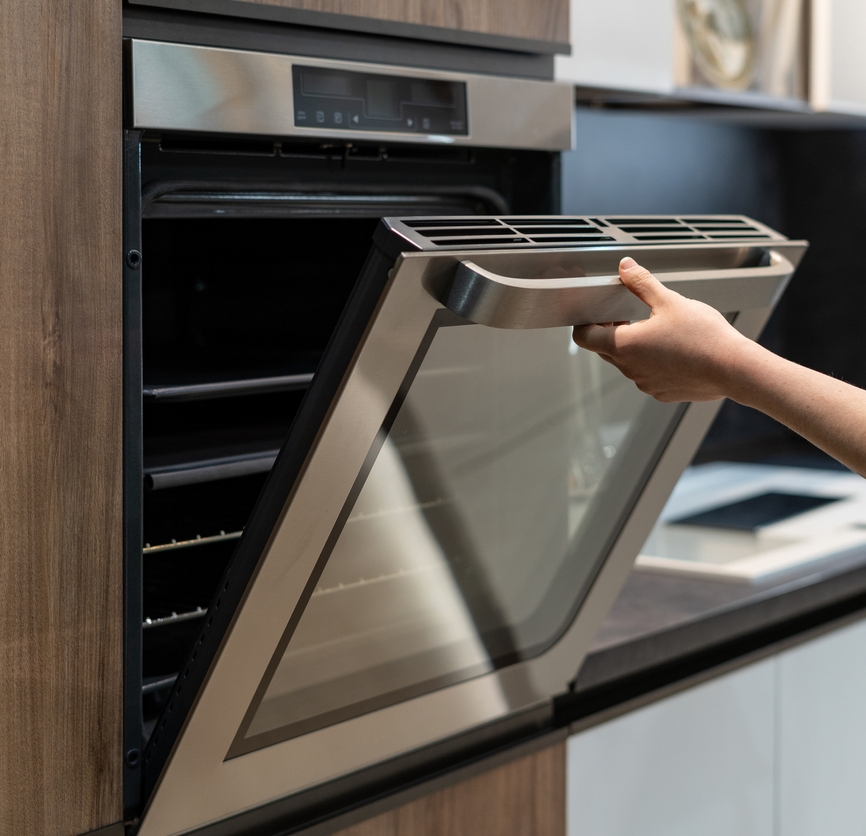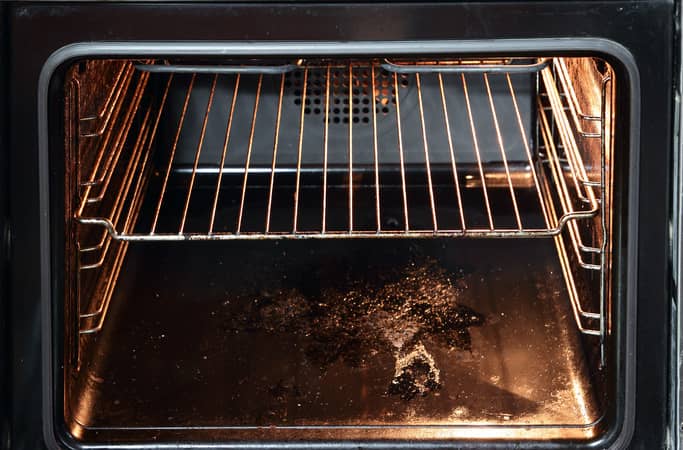Understanding Self-cleaning Ovens

Self-cleaning ovens are a convenient and efficient way to maintain a clean cooking appliance. These ovens are designed with a special self-cleaning cycle that heats the oven to high temperatures, which helps to burn off food residue and grease. During the cleaning process, the oven door locks for safety purposes, and any food particles are turned into ash. Once the cleaning cycle is complete, you can simply wipe away the ash residue with a damp cloth. This feature eliminates the need for harsh chemicals and scrubbing, making oven cleaning hassle-free and time-saving.
What Is A Self-cleaning Oven And How Does It Work?
A self-cleaning oven is a kitchen appliance that is designed to clean itself without the need for scrubbing or chemical cleaners. It works by using high temperatures to burn off food residue and grease. During the self-cleaning cycle, the oven door locks for safety reasons, and any food particles are turned into ash. Once the cleaning process is complete, all that remains is a residue of ash that can be easily wiped away with a damp cloth. This feature eliminates the need for heavy cleaning and makes oven maintenance a breeze.
Safety Precautions When Using A Self-cleaning Oven
When using a self-cleaning oven, it is important to take certain safety precautions to ensure the well-being of yourself and your home:
- Read the manufacturer’s instructions: Familiarize yourself with the specific guidelines provided by the manufacturer for your particular oven model.
- Remove any flammable objects: Before starting the self-cleaning cycle, remove any flammable objects such as oven mitts, aluminum foil, or kitchen towels.
- Ventilate the area: Open windows or turn on the exhaust fan to enhance ventilation and prevent the buildup of fumes during the cleaning process.
- Keep a fire extinguisher nearby: Have a working fire extinguisher on hand in case of any unexpected fires.
- Monitor the oven: Stay near the oven during the self-cleaning cycle to quickly address any issues that may arise.
By following these safety precautions, you can use your self-cleaning oven with confidence and minimize any potential risks.
Common Myths About Self-cleaning Ovens

Common myths about self-cleaning ovens often lead to misconceptions and unnecessary concerns. One common myth is that self-cleaning ovens release harmful toxins during the cleaning process. However, this is not true. The fumes produced during self-cleaning cycles are not harmful to humans or pets. Another myth is that self-cleaning ovens can cause fires or explosions. While there may be some risks associated with the self-cleaning process, as long as proper safety precautions are followed, the likelihood of accidents is very low. It’s important to separate fact from fiction when it comes to self-cleaning ovens to make informed decisions and enjoy their benefits.
Debunking The Myth That Self-cleaning Ovens Release Harmful Toxins
Contrary to popular belief, self-cleaning ovens do not release harmful toxins during the cleaning process. This is a common myth that has caused unnecessary concern among users. The fumes produced during the self-cleaning cycle are not harmful to humans or pets. In fact, the self-cleaning function is designed to safely break down any food particles and grease inside the oven, turning them into ash. It is important to follow the manufacturer’s instructions and ensure proper ventilation during the self-cleaning process. Overall, self-cleaning ovens are a safe and convenient option for maintaining a clean oven.
Myth: Self-cleaning Ovens Can Cause Fires Or Explosions
Contrary to popular belief, self-cleaning ovens do not pose a significant risk of causing fires or explosions. The self-cleaning function is designed with safety features to prevent such incidents. The high temperatures used during the cleaning process may cause smoke or produce a burning smell, but this is normal and not a cause for alarm. It is important to follow the manufacturer’s instructions and ensure proper ventilation during the self-cleaning cycle. Proper maintenance and regular cleaning of the oven can help prevent any potential issues.
Risks Associated With Self-cleaning Ovens

One potential risk associated with self-cleaning ovens is the high temperatures reached during the cleaning process. These temperatures can cause smoke or produce a burning smell, which can be alarming to some users. Additionally, the intense heat can potentially damage the oven’s internal components if the oven is not properly maintained or if there are any defects. It is important to follow the manufacturer’s instructions and regularly inspect the oven for any signs of damage to ensure safe operation. Proper ventilation is also crucial to prevent the buildup of fumes during the cleaning cycle.
Potential Risks Of Using Self-cleaning Ovens
When using self-cleaning ovens, there are potential risks that users should be aware of. One of the main risks is the high temperatures reached during the cleaning process, which can produce smoke or a burning smell. There is also a risk of damage to the oven’s internal components if the oven is not properly maintained or has any defects. Ventilation is crucial to prevent the buildup of fumes during the cleaning cycle. Following the manufacturer’s instructions and regularly inspecting the oven for any signs of damage are essential for safe operation.
How To Safely Operate A Self-cleaning Oven
To safely operate a self-cleaning oven, follow these guidelines:
- Read the manufacturer’s instructions: Familiarize yourself with the specific guidelines provided by the oven’s manufacturer to ensure safe operation.
- Remove any debris: Before starting the self-cleaning cycle, remove any loose food or grease from the oven to prevent excessive smoke or fumes during cleaning.
- Clear the area: Ensure that the oven’s surrounding area is clear of any flammable materials, such as paper or plastic, to avoid potential fire hazards.
- Use proper ventilation: Open windows or turn on kitchen exhaust fans to ensure proper ventilation during the cleaning process, as it may produce smoke or odors.
- Set the timer: Activate the self-cleaning function and set the timer according to the manufacturer’s instructions. Avoid leaving the oven unattended during this cycle.
- Monitor the oven: Keep an eye on the oven during the cleaning process and be prepared to intervene if any issues, such as excessive smoke or a burning smell, occur.
By following these safety precautions and instructions, you can safely operate a self-cleaning oven and maintain its optimal performance.
Facts About Oven Cleaning Methods

When it comes to cleaning ovens, there are various methods to choose from. Self-cleaning ovens, as mentioned earlier, use high temperatures to burn off baked-on food and grease. Traditional cleaning methods, on the other hand, typically involve scrubbing the oven manually using cleaning solutions. While self-cleaning ovens offer convenience and time-saving benefits, traditional cleaning methods allow for more control over the cleaning process. It is important to note that both methods have their own set of benefits and drawbacks. Ultimately, the choice of cleaning method will depend on personal preference and the specific needs of the oven.
Comparison Between Self-cleaning Ovens And Traditional Cleaning Methods
Self-cleaning ovens and traditional cleaning methods differ in their approach to oven maintenance. Self-cleaning ovens use high temperatures to burn off food and grease, eliminating the need for manual scrubbing. This convenience saves time and effort. On the other hand, traditional cleaning methods require manual scrubbing using cleaning solutions. While these methods offer more control over the cleaning process, they can be time-consuming and require more physical labor. It is important to consider personal preferences and specific oven needs when choosing between self-cleaning ovens and traditional cleaning methods.
Benefits And Drawbacks Of Each Cleaning Approach
When it comes to oven cleaning, both self-cleaning ovens and traditional cleaning methods have their own benefits and drawbacks.
Self-cleaning ovens offer convenience and time-saving benefits. They eliminate the need for manual scrubbing and use high temperatures to burn off food and grease. This can be particularly useful for individuals with busy schedules or limited physical mobility. However, self-cleaning cycles can be time-consuming and energy-intensive. They may also emit heat and odors during the cleaning process, which could be a concern for individuals with respiratory sensitivities.
On the other hand, traditional cleaning methods provide more control over the cleaning process. They allow for the use of specific cleaning solutions and techniques tailored to individual needs. This can be beneficial for individuals who prefer a hands-on approach or have specific cleaning requirements. However, traditional cleaning methods can be labor-intensive and time-consuming, requiring manual scrubbing and potentially exposing individuals to cleaning chemicals.
It’s important to weigh these benefits and drawbacks when deciding on the most suitable cleaning approach for your oven. Consider factors such as time availability, physical capabilities, and personal preferences to make an informed decision.
Expert Opinions On Self-cleaning Ovens

Experts in the appliance industry have weighed in on the safety of self-cleaning ovens. According to professionals, self-cleaning ovens are generally safe for household use when used properly. They emphasize the importance of following the manufacturer’s instructions and taking necessary precautions during the cleaning process. While self-cleaning cycles may emit heat and odors, these are considered normal and not a significant health risk. Overall, experts agree that self-cleaning ovens can be a convenient and effective cleaning option when used responsibly. It is important to consult the manufacturer’s guidelines and seek professional advice if any concerns arise.
Insights From Professionals In The Appliance Industry
Professionals in the appliance industry offer valuable insights on the safety and use of self-cleaning ovens. They stress the importance of following the manufacturer’s instructions and taking necessary precautions during the cleaning process. These experts acknowledge that self-cleaning cycles may emit heat and odors, but assure that they are considered normal and not a significant health risk. They emphasize the convenience and effectiveness of self-cleaning ovens when used responsibly. Should any concerns arise, it is recommended to consult the manufacturer’s guidelines and seek professional advice.
Are Self-cleaning Ovens Safe For Household Use?
Self-Cleaning Ovens are generally safe for household use when used correctly and following the manufacturer’s instructions. While the self-cleaning cycle may emit heat and odors, it is considered normal and does not pose a significant health risk to humans or pets. It is important to take necessary precautions and ensure proper ventilation during the cleaning process. Additionally, it is recommended to remove any items or substances that may be sensitive to high heat or produce toxic fumes. Overall, self-cleaning ovens can be a convenient and effective option for maintaining a clean and hygienic kitchen environment.
Conclusion

In conclusion, self-cleaning ovens are generally safe for household use, debunking the myths surrounding their potential harm. The fumes emitted during the self-cleaning cycle are typically not harmful to humans or pets, except for tropical birds. By following manufacturer instructions and taking necessary precautions, such as proper ventilation and removing sensitive items, self-cleaning ovens can provide a convenient and effective means of maintaining a clean and hygienic kitchen. It is important to understand the facts about self-cleaning ovens and make informed decisions based on accurate information.
Summary Of Key Points Regarding The Safety Of Self-cleaning Ovens
Self-cleaning ovens are generally safe for household use, debunking the myths surrounding their potential harm. It is important to follow manufacturer instructions and take necessary precautions, such as proper ventilation and removing sensitive items, to ensure safe use. The fumes emitted during the self-cleaning cycle are typically not harmful to humans or pets, except for tropical birds. By understanding the facts about self-cleaning ovens and making informed decisions, they can provide a convenient and effective means of maintaining a clean and hygienic kitchen.
Final Thoughts On Debunking Myths Surrounding Self-cleaning Ovens
In conclusion, the myths surrounding the safety of self-cleaning ovens have been debunked. It is important to approach these appliances with accurate information and follow manufacturer instructions for safe use. The fumes emitted during the self-cleaning cycle are generally not harmful to humans or pets, except for tropical birds. By taking necessary precautions, such as proper ventilation and removing sensitive items, self-cleaning ovens can provide a convenient and effective means of maintaining a clean and hygienic kitchen. Overall, understanding the facts about self-cleaning ovens can help dispel any concerns and ensure a safe cooking environment.
FAQ About Can Self Cleaning Oven Kill You: Debunking Myths
Q: Can a self-cleaning oven kill you?
A: No, using a self-cleaning oven as directed by the manufacturer is safe for homeowners. These ovens are designed with safety features to prevent any harm.
Q: Is it harmful to breathe in fumes during the self-cleaning process?
A: While the self-cleaning process can produce some smoke and strong odors, it is not harmful if the kitchen is properly ventilated. It is recommended to open windows or turn on the exhaust fan during the cleaning cycle.
Q: Are there any safety precautions one should take when using a self-cleaning oven?
A: To ensure safety, it is advised not to touch the oven during the cleaning cycle as it reaches high temperatures. Keep the area well-ventilated and never block the oven vents.
Q: Can the residues left after self-cleaning be harmful?
A: The residues left after the self-cleaning cycle is complete are safe once the oven has cooled down. It is essential to wipe down any remaining ash or residue from the oven interior before using it for cooking again.
Q: Are there any myths about self-cleaning ovens being dangerous?
A: Yes, there are myths surrounding self-cleaning ovens, but when used correctly, they are safe appliances. It’s important to follow the manufacturer’s instructions and take necessary precautions for a hassle-free cleaning experience.

Hot Pot Chinese Restaurant, located in Mechanicsville, MD 20659, is a culinary destination that offers a delightful array of Chinese cuisine. From the cozy ambiance to the delectable dishes, Hot Pot Chinese Restaurant is dedicated to providing an exceptional dining experience for all patrons. Since our establishment, Hot Pot Chinese Restaurant has been committed to serving the finest Chinese food, offering a diverse menu that caters to a wide range of tastes. Whether you’re craving traditional favorites like Kung Pao Chicken and Mongolian Beef or seeking out more adventurous options like Szechuan Spicy Hot Pot, our menu has something to satisfy every craving.